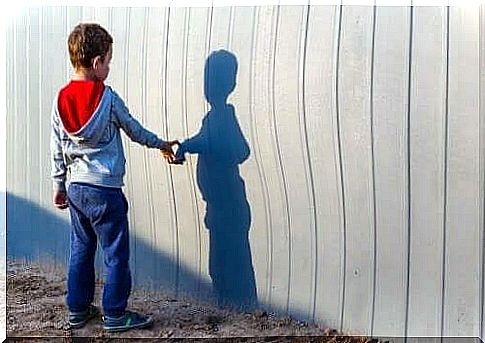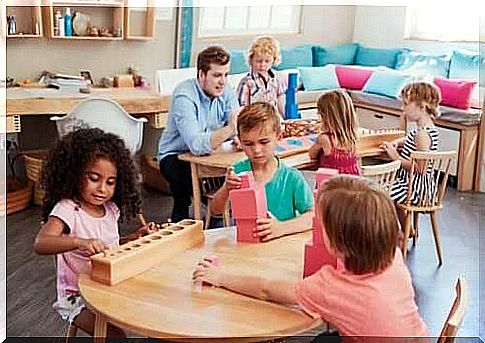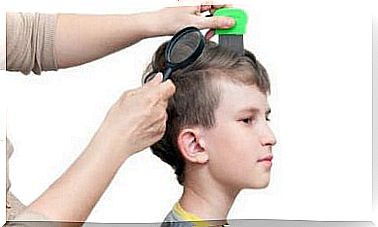Is There A Cause For Concern If The Child Has An Imaginary Friend?

Many children have an imaginative friend or other such invented character that stimulates his creativity and helps him express his feelings. However, this phenomenon can seem strange to parents, and it causes many to worry about their child. In general, however, there is no reason to fear that something is wrong.
So now we want to give advice on how to treat a child’s imaginative friend and what this phenomenon is all about.
Why do so many children have an imaginative friend?

These creatures are the product of a child’s lively and imaginative imagination, and an imaginative friend may appear to accompany the child from the age of two. This is when the little one begins to learn the language and understand all that he lives in. A child develops these imaginative products for himself for many reasons.
Parents are often surprised to find that a child is playing and talking to themselves. When they then ask who the child is talking to, this might answer quite calmly with that new friend. The situation can be worrying for many parents, but in fact, these characters are part of a child’s mental development. They relate to the child’s extremely creative and sensitive mind.
A study of 152 children aged 3-4 years, with Marjorie Taylor and Stephanie Carlson from the Universities of Oregon and Washington as lead researchers, found that two out of three children had such an imaginative friend. 70% of the children studied were first-born or only children.
The study showed that there is no direct link between a child’s loneliness and the invention of an imaginative friend. In fact, such a character is useful because it allows the child to better express their feelings and improve their communication skills.
Nevertheless, it cannot be ignored that an imaginary friend can sometimes be a sign of a child’s shock or emotional deficiencies. Namely, these friends are also allies who help the child adjust to difficulties such as divorce, the arrival of a new sibling, changing schools, or moving to a new city.
My child has an imaginary friend – what do I do now?
First and foremost in this situation, it is worth remembering to be calm. Up to the age of eight, it is perfectly normal for a child to have a friend produced by the imagination. So there is no need to worry, and only information is needed so that parents can approach the situation correctly.
Behave naturally
Don’t ignore or reject your child’s imaginative friend. So behave naturally, that is, do not encourage a child’s relationship with an imaginary friend, but also do not deny the existence of this. Remember that that friend is a part of a child’s life, even if the character is a product of the imagination.
Can a child’s imaginative friend meet?
Yes, in fact, it is recommended that parents “meet” their child’s new friend in exactly the same way that a real friend would meet. When you ask your child about this friend, you will find out what this means for him or her and how you should approach the situation.
Don’t let an imaginative friend turn a child into an excuse
Do not allow a child to use a new friend to break the rules. Teach your child discipline and how to take responsibility, whether he or she has a new “friend” or not.
Encourage your child to interact with other children

Even if a parent should show respect and acceptance for these imaginative beings, it is important to ensure that the child spends time with the right children as well. In this way, he is able to get the stimulation of his psychological and social skills, and thus the imaginative friend may actually disappear from the child’s mind.
When should you worry about a child’s imaginative friend?
If you notice any of the following symptoms in your own child, you may want to contact a psychologist or therapist for help:
- A child isolates himself from others and prefers to play with his imaginary friend rather than real children or friends.
- You may notice agitation, lack of control over behavior, confusion, or irritation when an imaginative friend appears with your child.
- The personality of such an invented friend will cause discomfort or fear in your child.
As we have said on many other issues related to children, time and dedication are key to noticing problems. The attention that parents direct to their children is therefore very important in determining whether a child can notice major problems behind the invention of an imaginative friend.
Now you know that such an imaginary friend is usually not a sign of a child’s problems, but quite a normal part of his or her development at a certain age. If you’ve ever wondered how it would be good to treat such a new friend, take this advice to help you face the situation well.









